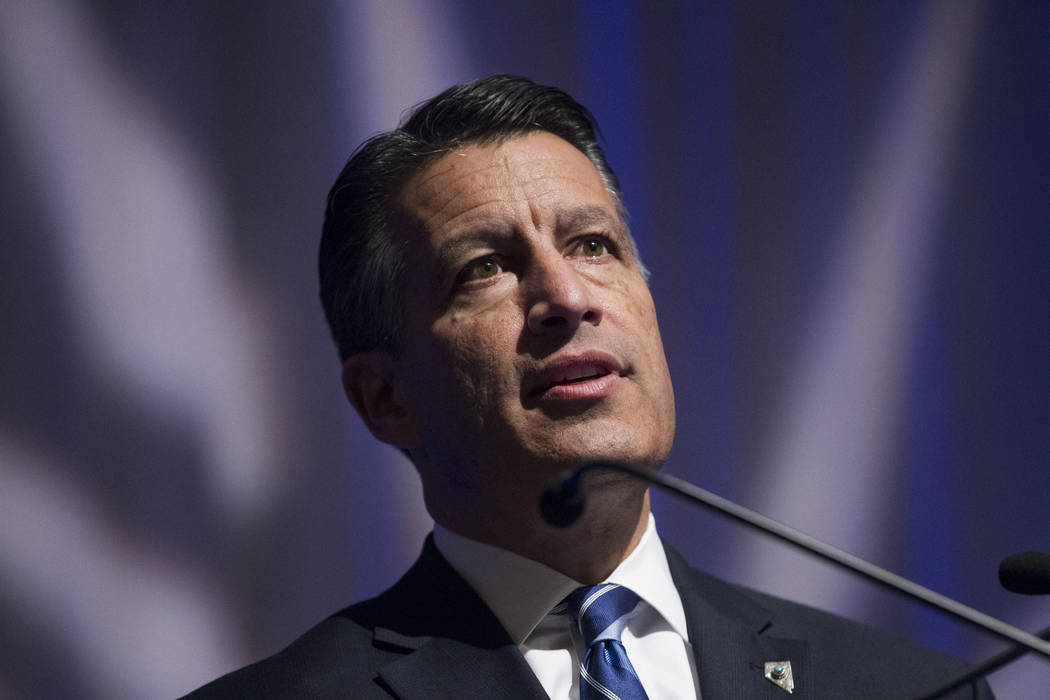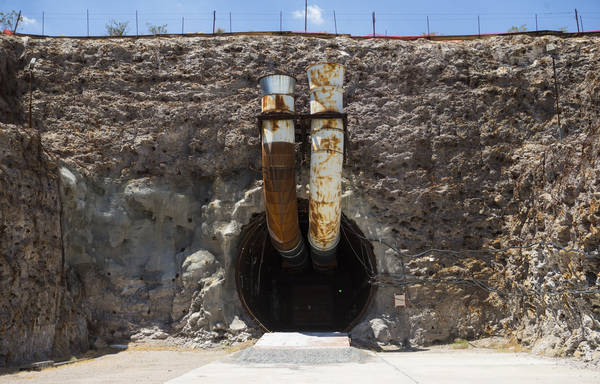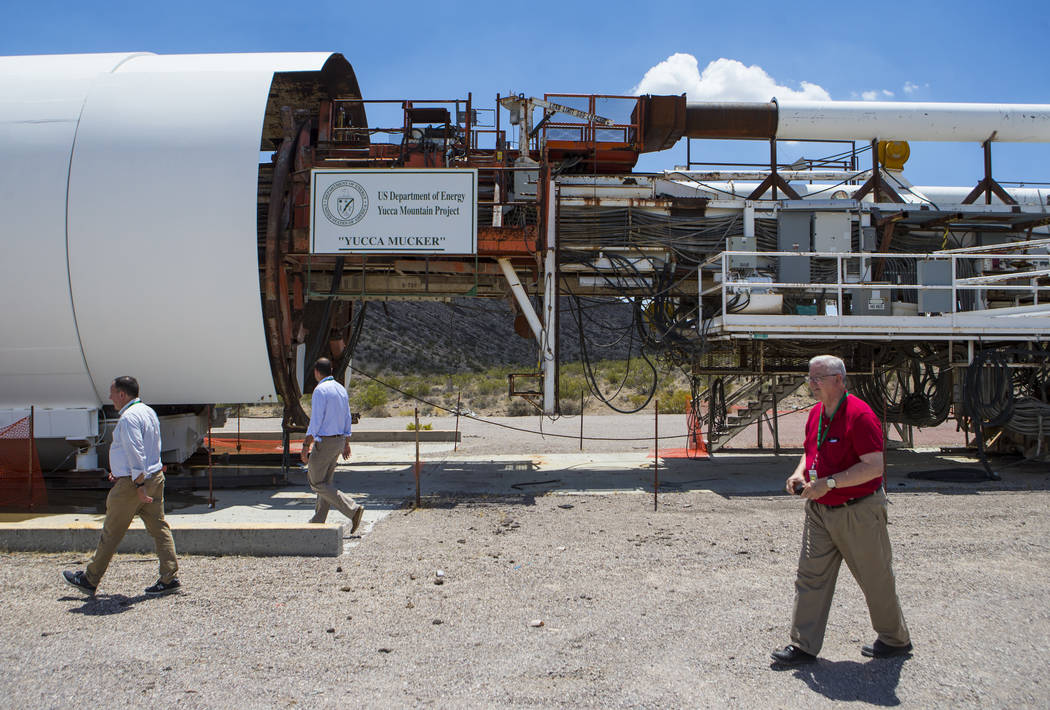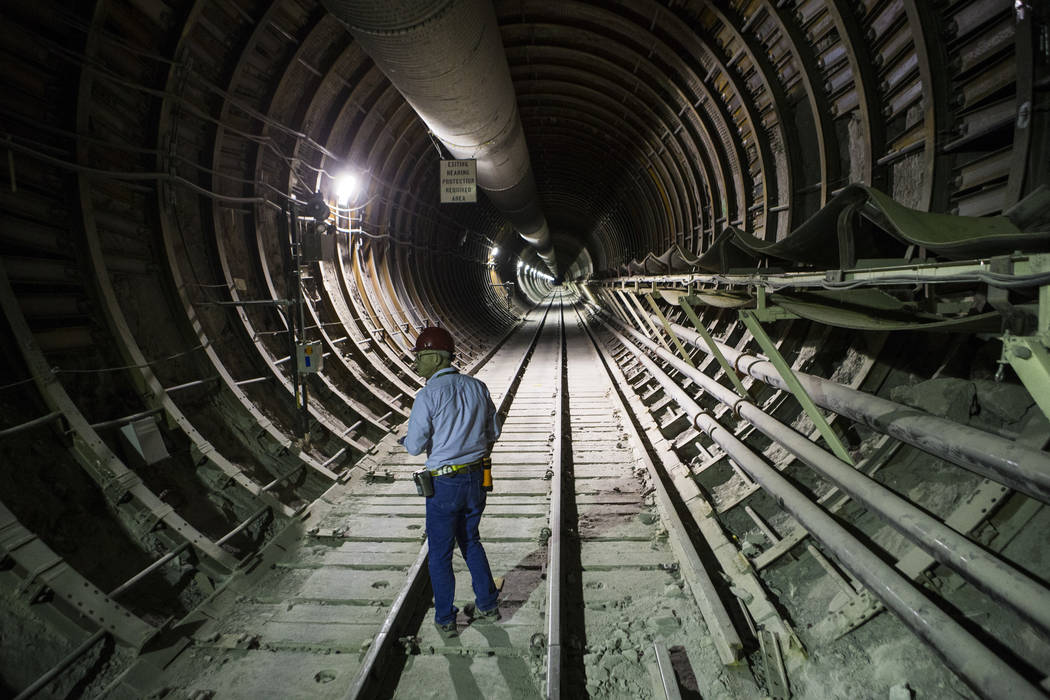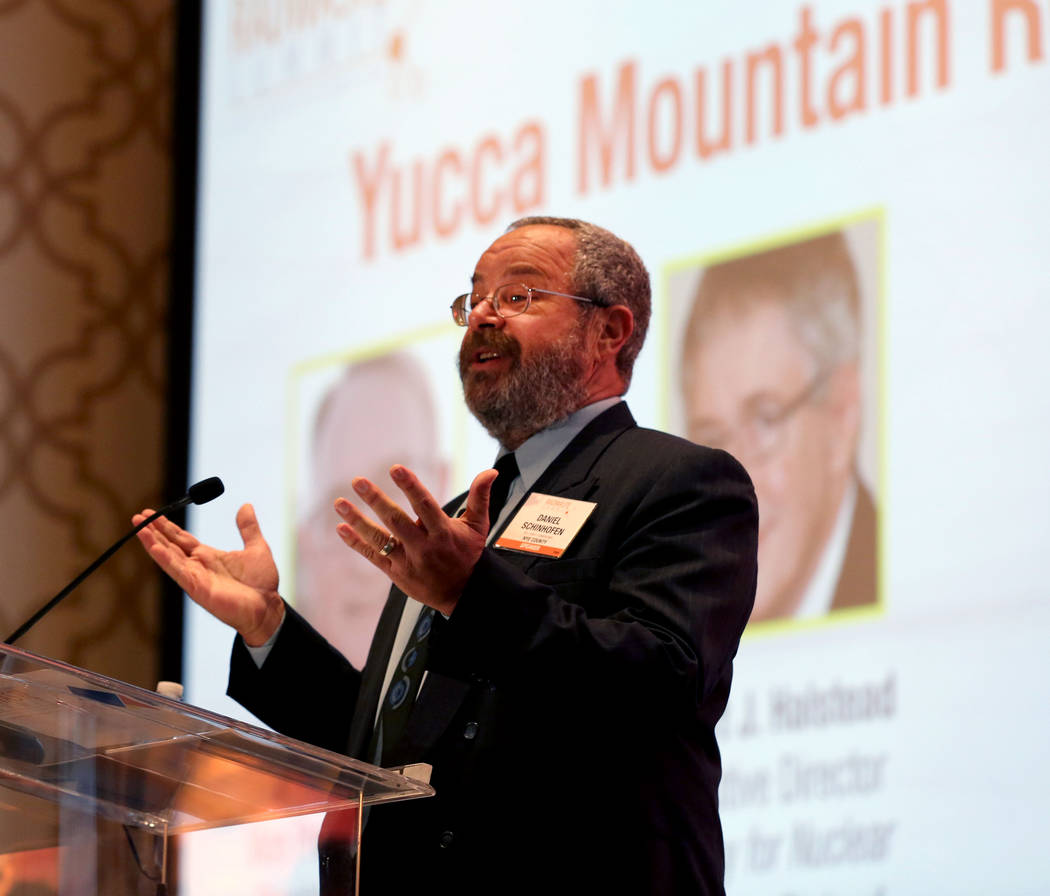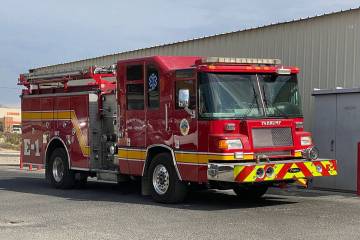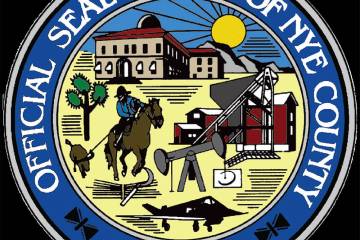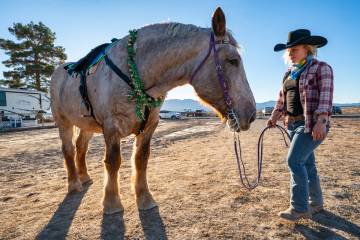Nevada Gov. Sandoval: gear up to fight Yucca Mountain in 2019
Despite a stalemate in Congress that appears to have shelved action on the Yucca Mountain nuclear waste project for the year, Nevada Gov. Brian Sandoval urged state officials to be prepared and proactive and to take the battle to the federal government.
“Let’s continue to slug ’em in the stomach and pop ’em between the eyes,” Sandoval said during a Board of Examiners meeting in Carson City on Aug. 14.
Sandoval, who has four months left in his term, pledged resources to the state’s leaders on the 30-member team assembled to fight the Department of Energy’s stalled license application before the Nuclear Regulatory Commission for a permit to build the Yucca Mountain nuclear waste repository.
Even though funding for licensing was stripped out of Senate bills, Sandoval said, “we need to anticipate something is going to happen after the first of the year.”
Sandoval said overwhelming House approval for a bill to streamline the licensing process, and Trump administration requests for funding for licensing hearings, make it likely Congress could move forward after the midterm election.
“We need to be ready for it,” Sandoval said in a video recording of the meeting. “If there is something we can do there, we should do it.”
The Board of Examiners approved state contracts, including a $150,000 extension for Marta Adams, a former Nevada chief deputy attorney general and an expert in federal water and public land issues who has been hired to serve on the team fighting the proposed license application.
Nye County reaction
The Pahrump Valley Times contacted Nye County Commissioner Dan Schinhofen, one of the most vocal proponents of Yucca Mountain in Nye County. He has said he stands with eight other rural Nevada counties that support vetting the science of Yucca Mountain.
“The state continues to refuse to hear the science and the facts on transportation while using rhetoric to peddle fear,” Schinhofen said in a statement released this week.
“The state’s use of our tax dollars to prevent a safe program that would bring billions of dollars to the state continues to boggle my mind,” Schinhofen continued. “The state’s politicians continue to cater to Clark and Washoe counties to the detriment of Nye County and the eight other rural counties who have asked to hear the science,” Schinhofen said. “Why is the state afraid to have its science vetted by the Nuclear Regulatory Commission?”
“The state seems unwilling to answer that question while continuing to work to block hearings from being held at all,” Schinhofen concluded.
Legal challenges
Nevada was active in legal challenges last year.
In June, the New Orleans-based 5th Circuit Court of Appeals granted a motion by Nevada Attorney General Adam Laxalt to dismiss a lawsuit filed by Texas to force a licensing decision on Yucca Mountain.
Texas argued the NRC failed to meet a 2012 deadline to rule on the license application. The licensing hearings were halted in 2011 when the Obama administration pulled funding for the process.
Nevada claimed the Texas lawsuit to force a decision would deny the Silver State’s due process right to hearings, and the opportunity to challenge the license.
The Nevada legal team also sought a recusal from NRC Commissioner David Wright on Yucca Mountain because of his previous work advocating for, and publicly endorsing, the site for permanent nuclear storage.
Wright rejected the request, which could bring legal challenges by the state on any of his votes or NRC decisions involving Yucca Mountain.
Robert Halstead, executive director of the governor’s Agency for Nuclear Projects, said the state has gone toe-to-toe with the Trump administration and the House over funding proposals and efforts to jump-start the licensing process.
While Texas may still appeal the decision by the 5th Circuit Court of Appeals, Halstead said the state this year has fought proponents of Yucca Mountain, and “we’ve battled them to a draw.”
Halstead said he did not want to publicly disclose future litigation strategy, but noted that the state was prepared to take action on three cases that have been in abeyance.
Continuing to fight
Sandoval applauded the success, and encouraged the state team to continue the battle.
“We’re going to take the fight to them,” Sandoval said.
Congress designated Yucca Mountain as the nation’s permanent nuclear waste storage site in 1987. The federal government has spent more than $15 billion to study the site.
The Nevada location was expected to begin receiving nuclear waste from public power plants and the Navy in 1998, but legal challenges and political opposition have delayed movement on developing the site.
Since then, nuclear waste has piled up at power plants across the country, prompting safety concerns and a call for interim storage until a permanent storage site is available.
Although the entire Nevada congressional delegation is opposed to the project, the House voted 340-72 in May to streamline the licensing process and increase storage at Yucca Mountain from 70,000 to 110,000 metric tons of waste.
The Senate has stripped Yucca Mountain provisions out of legislation, a move that benefits Sen. Dean Heller of Nevada, considered the most vulnerable GOP senator seeking re-election in 2018.
But despite the stalemate between the House and Senate, Sandoval and Halstead said Tuesday in Carson City that they expect a Trump administration push after the election to jump-start the licensing process on Yucca Mountain.
“We need to be prepared for another round in 2019,” Halstead said.
Sandoval said he would continue the fight against Yucca Mountain in his final four months in office.
“I don’t want to play defense anymore,” Sandoval said. “So anywhere we have an opportunity, we’re going to take it to them.”
The Pahrump Valley Times staff contributed to this story.
In case you missed it
Go to pvtimes.com for a video that gives a behind-the-scenes look at the proposed Yucca Mountain facility in Nye County


